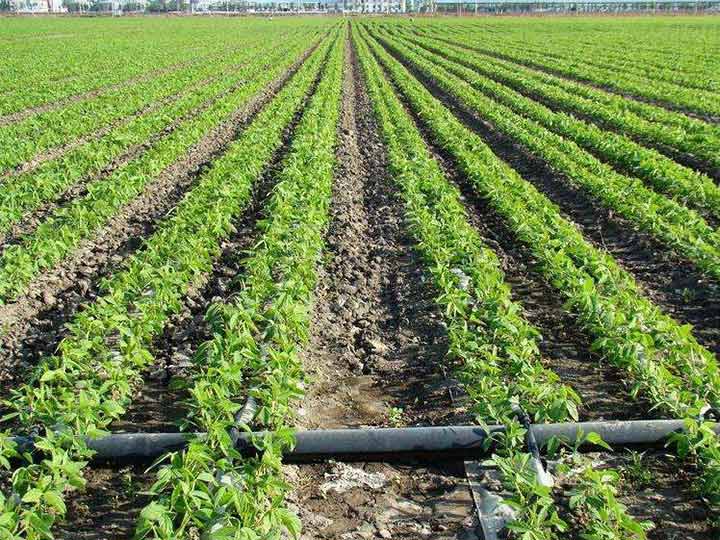When the rice seedlings are cultivated well by automatic rice nursery sowing machine, they should be transplanted by special transplanting machine. To enable that the seedlings can grow well, we also use trickle irrigation technology. What’s trickle irrigation?

The definition of trickle irrigation
Trickle irrigation is to use water dispenser installed on the capillary tube to evenly and slowly inject the water and nutrients required by crop into soil.
The advantage of trickle irrigation
1. Drip irrigation does not damage the soil structure. The soil can maintain a good condition suitable for crop growth, , and is a water-saving irrigation method.
2.Low evaporation loss, almost no deep leakage.
3. The irrigation volume is small, and the flow rate of the irrigation device is 2-12 liters per hour wit short irrigation period.
4. Low working pressure. It can control the irrigation volume accurately, and will not cause water waste, increasing output.
5. Since sufficient water is not supplied between plants, weeds are not easy to grow, so the interference between crops and weeds for nutrients is greatly reduced, reducing the weeding time.
6. Drip irrigation belongs to full-pipe water delivery and local micro-irrigation, which reduces water loss to a minimum, and greatly improves water utilization efficiency.
7. Irrigation can be easily combined with fertilization. As the chemical fertilizer is combined with the irrigation water, fertilizer nutrients are directly and evenly applied to the crop root system, which greatly improves the utilization of fertilizers.
8. Micro-irrigation can reduce the leakage of chemical fertilizers, thereby reducing pollution caused by it.
9. Maintain soil structure. Drip irrigation is a kind of micro-irrigation. The water slowly and evenly penetrates into the soil, which can maintain the soil structure.
Disadvantage
1. Easy to cause clogging. The blockage of the irrigation device is the most important problem in current drip irrigation applications. When it is serious, the entire system will not work properly or even be scrapped.
2. Cause salt accumulation. When drip irrigation is carried out on soils with high salt content, salt will accumulate at the edge of the humid area. If light rain occurs, these salts may be washed into the crop root area and damage the plants. Therefore, do not adopt drip irrigation on soils with high salt content where there is not enough rainfall.
3. Restrict root system development. Drip irrigation only moistens part of the soil, and this will cause the crop root system to grow in a humid area.
Why is the water dispenser blocked?
The cause of the blockage can be physical, biological or chemical. Such as sediment, organic matter, microorganisms and chemical sediments in water. Therefore, the water quality requirements for drip irrigation are relatively strict, and they should generally be filtered, if necessary, they must also be subjected to precipitation and chemical treatment.
Please contact us to know more details about rice transplanting machine and automatic rice nursery sowing machine.
